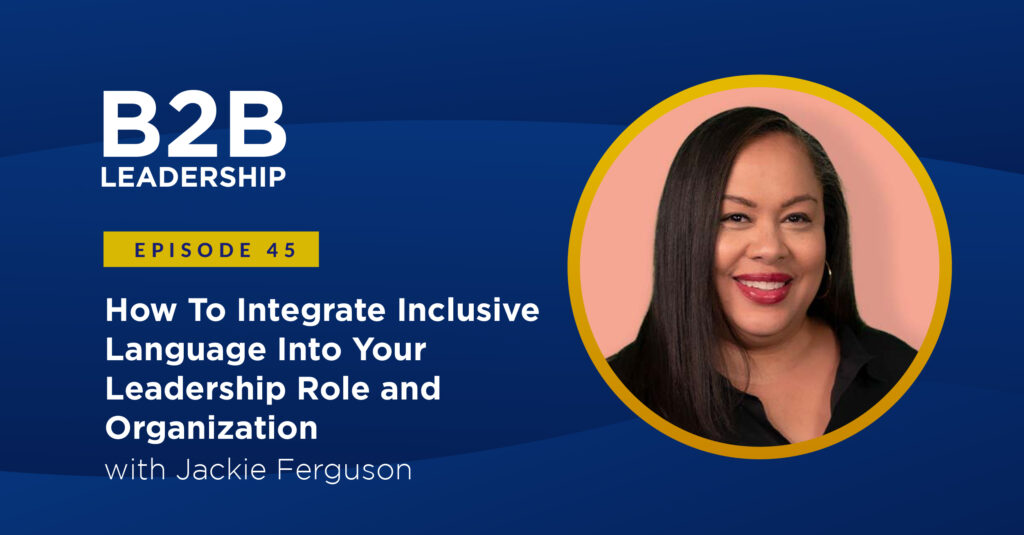
Nils Vinje talks to a lot of managers, and he’s heard their horror stories.
“Tell me about your first management role,” the leadership coach, author and host of the B2B Leadership podcast, asks his guests. The responses? “I didn’t know what I was doing.” “I didn’t understand how to tap the potential of my team.” “I made so many mistakes.”
Top-performing individuals are often promoted into leadership positions, but rarely do they get the training and support they need to lead effective teams. While most rookie managers would benefit from a formal professional development course, it’s ultimately up to the individual to manage their own learning. As Caroline Castrillon writes in Forbes, everyone needs to be the CEO of their own career.
If the company doesn’t have a mentoring program or course for new managers, Vinje suggests that rookie leaders identify a leadership training course, detail its costs and benefits, and ask their supervisor if the company will pay for the training. But even if the answer is no, giving up is not an option.
“You have to be willing to invest in yourself, even if your company isn’t going to invest,” Vinje says. “Most people will default to, ‘If my company doesn’t pay for it, I can’t do it.’ But why let your company decide that you’re not going to go as far as you can in your career? That’s not okay.”
Maybe a training course isn’t financially possible, but there are low-cost ways to acquire the knowledge to be a better, more inclusive leader. All you need is determination and a commitment to put in the time to learn. One of the best ways to learn is to connect with successful leaders, and ask for a 15-minute conversation. Find out what worked for them, what to read, and who else to connect with.
“It’s just like following a little trail,” Vinje says. “It’s your choice, and you have to show your drive and enthusiasm that way.”
If you aren’t ready to connect with leaders yet, there is plenty of advice in the form of leadership podcasts, video courses, and books. Another good place to begin is these six essential leadership skills, detailed by Donald Thompson, CEO of The Diversity Movement and an experienced executive coach:
- New managers need to shift their focus from their personal success to team success. This mental adjustment is one of the hardest tasks for new leaders, especially if they have been top individual performers. If you are already used to collaborating to achieve the best outcomes, you are ahead of the game. It might also help to remember that in business, like sports, wins are accomplished by teams.
- Cultivate a leadership presence. This might include projecting confidence, taking responsibility for directives, and behaving calmly even in tough situations. Good leaders should be able to respond to unexpected situations professionally, which helps them manage other people’s emotions. There are many ways to be a good leader, and developing your own personal leadership style should be an ongoing process.
- Be confident, not arrogant. Confidence is the ability to act in a self-assured manner, to be composed when leading meetings and bold when suggesting ideas. But confidence is also being transparent about your shortcomings, listening to other points of view, and allowing others to take the lead when appropriate. Confidence also takes practice, and the best way to cultivate it is to keep saying yes to assignments that challenge you, even when you want to say no.
- Learn how to give feedback, both positive and negative. New leaders usually don’t have problems providing positive feedback – words of encouragement and public acknowledgment when a job is done well. However negative feedback takes practice, and a communication framework can be a useful tool. No matter the approach, it’s best to be clear, kind, and direct. Leaders should meet privately with the employee soon after the issue arises, articulate the specific problem clearly, and work collaboratively to identify a solution.
- Delegate, because you can’t do everything yourself, and you shouldn’t. You are more effective when you use the power of your team to achieve results. You might think you can do the task better yourself, but resist the urge to compete with your own people. By delegating assignments, you will be strengthening your team and making room for those tasks that only you can complete.
- Listen to and connect with your team members. Strong interpersonal communication skills allow leaders to identify people’s strengths and weaknesses, their professional goals, and how they can benefit the whole team – to find alignment. Promote a collaborative, creative work environment by asking everyone on the team for their ideas and actively listening to their feedback. Cultivate trust with your direct reports and show your respect by using inclusive language.
No matter where you are on your journey to inclusive leadership, good communication is one of the most important skills to master. For more information on the power of words, check out Vinje’s recent podcast. He sits down with Jackie Ferguson, co-author of “The Inclusive Language Handbook: A Guide to Better Communication and Transformational Leadership,” to discuss how leaders can consistently use respectful language that promotes belonging, productivity, and teamwork.
Amber Keister is a Content Writer and Editor at The Diversity Movement. She has spent more than 20 years as a journalist for publications throughout the South. Connect with her on Linkedin.















